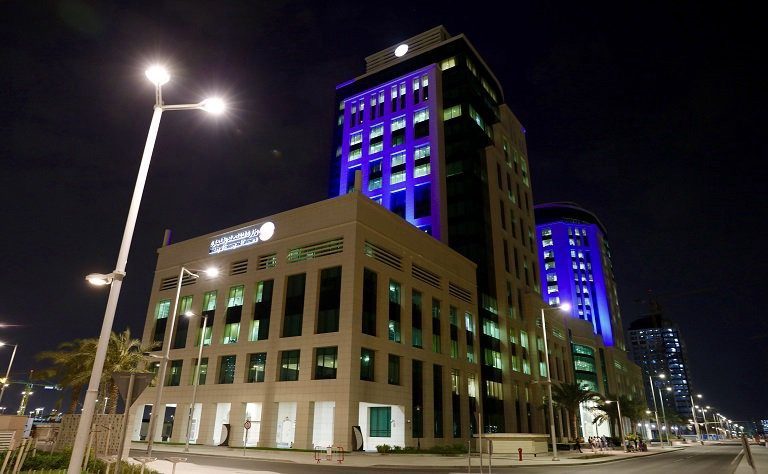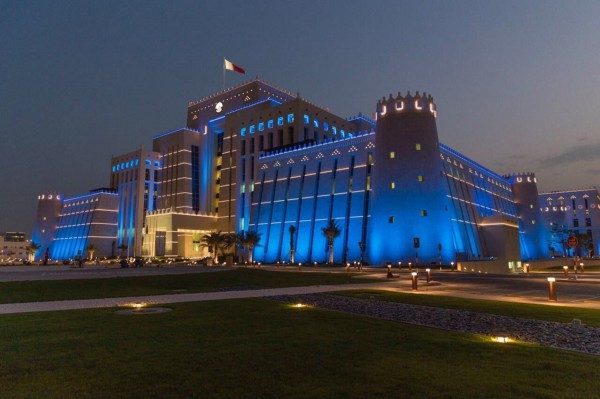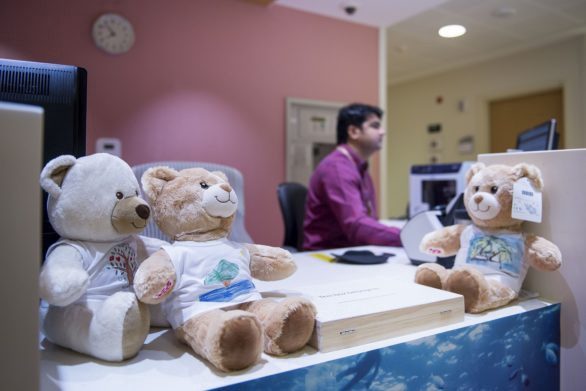


To raise awareness about autism, several Qatar ministries, businesses and other buildings lit up in blue last night.
Qatar joined several nations across the globe to mark World Autism Day.
The UN-designated day began a year after Qatar’s UN ambassador proposed it a decade ago.
Ministry Of Foreign Affairs Participates In World #Autism Awareness Dayhttps://t.co/flfkZRyviH#MOFA#Qatar #worldautismday pic.twitter.com/g3C2hSMVDk
— Ministry of Foreign Affairs – Qatar (@MofaQatar_EN) April 2, 2017
Today is the World #Autism Awareness Day! We at #DECCqatar are lighting up blue our venue to be part of this noble global initiative. pic.twitter.com/snUZoLxljn
— DECC Qatar (@Deccqatar) April 2, 2017
#الآن مباني #البلدية_والبيئة
بمناسبة #اليوم_العالمي_للتوحد #قطر #WorldAutismDay2017#WorldAutismDay #Qatar pic.twitter.com/aIfJvu3dPA— وزارة البلدية | Ministry Of Municipality (@albaladiya) April 2, 2017
Autism is a disorder that affects the brain’s development of social and communication skills, making it difficult for people to form relationships.
The condition typically manifests by the time children are two or three years old.
Its cause remains unknown, though both genetics and environmental factors are thought to play a role, according to Autism Speaks.
‘Huge problem’
According to the prestigious Cleveland Clinic, autism is a “huge problem” in Qatar, which has seen a sharp rise in cases in recent years.
It has been working to train doctors in the country to treat the disorder, and is also collaborating on a three-year project to determine the scope of autism in Qatar.
The “surprisingly high” prevalence is speculated to be due to genetic factors and high rates of consanguineous marriages, the hospital said in February.

As the disorder becomes more prevalent, Qatar’s network of support services has also been expanding.
In a statement this week, the Sidra Medical and Research Center said there are now clinical services, support groups, behavioral therapies and school-based programs available in the country.
Sidra added that its doctors work quickly to conduct assessments of children referred to them with suspected autism disorders.
This allows for earlier diagnosis, intervention and treatment.
National plan
Meanwhile, a local group has been working to finalize the Qatar National Autism Plan, which is based on six pillars: Awareness; Early Recognition and Screening; Diagnosis and Assessment; Interventions; Education and Transition into Adolescence, Adulthood and Elderhood.
https://www.instagram.com/p/BSYXoTkgL8O/?taken-by=doha_autism
The plan is being spearheaded by the Qatar Autism Families Association, whose head Fatima Al Sulaiti said last year:
“Even though autism is a lifelong condition, the right support at the right time can make an enormous difference to our children’s life.”
Thoughts?






